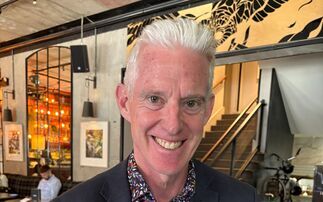Aida Greenbury of Asia Pulp and Paper explains how bottom line performance and sustainable forests can be combined to help deliver 'a green economy for Indonesia'
How can more companies be convinced to adopt their own zero deforestation policies?
Other companies, forest producers or consumers need to receive some kind of incentive when they do the right thing. That can be a premium price or market acceptance or lower tax or whatever, but they need to be recognised for doing the right thing. That is something we have not seen until now. That needs to be the first step, the global market has to recognise those who are not doing deforestation.
Secondly, the New York Declaration is not perfect - it still mentions halving deforestation in 2020 and ending deforestation in 2030. I know it is not perfect, because we have done that two years ago. But it is a good step. It needed to be signed by 30 different governments and governments are not going to sign up to something that needs to be done tomorrow, they are going to be cautious. But it is stepping in the right direction.
The most important thing now is that signing a declaration is easy, but who is going to implement this, where is the action plan, where is the money coming from to build a system, what is the responsibility of the 90 stakeholders who signed this declaration? Those are the questions that need to be answered.
Some economists have argued that one way to tackle deforestation is to adopt natural capital accounting models that place a financial value on the services forests provide. Do you think that approach can help convince more companies of the need to protect forests?
It is a tough question. The natural value is something you cannot measure very easily. It is very difficult. But if we can get consistency around a standard and get more solid evidence that shows that zero deforestation economically, not just emotionally, makes sense then that will make a difference. If we can show how this will benefit the bottom line of your operations, then it will sink in.
With us, for example, this was basically a business decision. There was a realisation that if we don't do this our plantation will fail. Our plantation will drown or be burnt. It is obvious for us, it is about protecting our assets.
And in doing so, you the get the biodiversity and other environmental benefits?
Yes, and you help restrict the outbreak of disease. Monoculture is not good. We use three species in our plantations with 100s of variants, so we are working to avoid monoculture but it is still a limited variety in there. So without a proper mosaic structure with natural forest in between and separation by corridors the disease outbreak threat is very high.
Zero deforestation has to make sense. To convince people of the merits of natural capital accounting it has to make sense business-wise. It has to improve the triple bottom line. We have to show how this delivers benefits economically, we can't just focus on the emotional part of this.
Join Aida Greenbury and James Murray for the BusinessGreen Zero Deforestation Debate on Twitter at 3pm on Thursday October 30th








